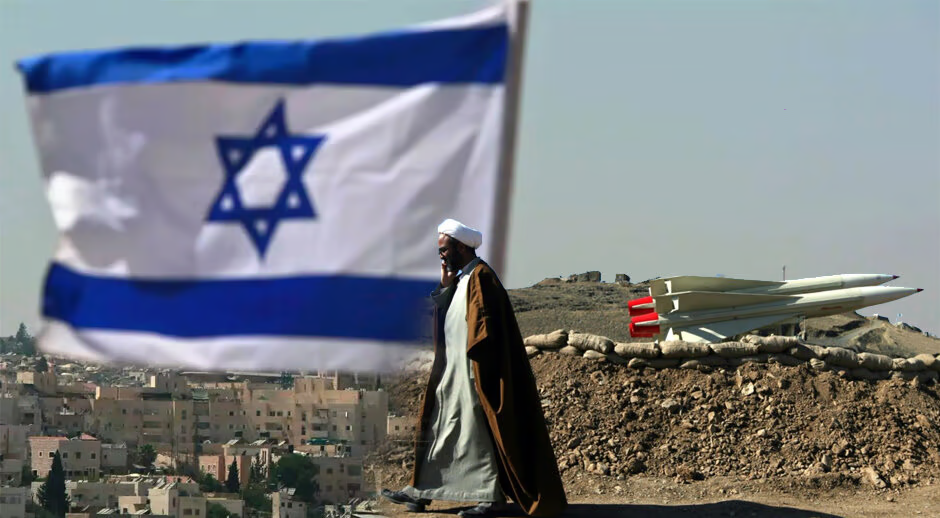When it comes to global politics, few rivalries are as intense as that between Israel and Iran. The tension between these two countries has been brewing for decades, rooted in political, religious, and territorial disputes. But what does this mean for the average person, especially in the U.S.? Let’s break it down without the jargon.
Why Should You Care About Israel and Iran?
You might be thinking, “How does the conflict between Israel and Iran impact me in the U.S.?” Here’s the thing:
Oil Prices:
Iran is one of the biggest oil producers in the world. When tensions spike, global oil prices can go up. You’ve probably noticed gas prices shoot up when things get heated in the Middle East.
Terrorism Concerns:
Iran has been linked to various militant groups, some of which have threatened Western interests. Any increase in conflict heightens the risk of terrorism.
Military Involvement:
The U.S. is closely allied with Israel, meaning if things escalate, America could be dragged into yet another war.
In short, even if it feels like a distant issue, what happens between Israel and Iran can have real consequences here at home.
A Brief History of the Conflict
Israel and Iran weren’t always enemies. In fact, before the 1979 Iranian Revolution, they were on relatively good terms. But when Iran’s monarchy was overthrown, and a theocratic regime took over, the relationship flipped.
Post-Revolution Iran:
Iran’s new leaders didn’t recognise Israel’s right to exist, labelling the country as a “Zionist enemy.” This marked the start of Iran’s support for anti-Israel militant groups like Hezbollah.
Nuclear Ambitions:
Iran’s nuclear program has been a major flashpoint. Israel, feeling directly threatened, has taken covert actions (like cyber-attacks) to prevent Iran from developing nuclear weapons.
Over the years, this tension has only grown, especially with Iran’s involvement in the Syrian civil war and its ongoing military activities in the region.
The Role of the U.S.
You can’t talk about Israel and Iran without mentioning the U.S. America has been a staunch ally of Israel since its founding. But Iran? Not so much.
- Sanctions: The U.S. has led efforts to impose harsh economic sanctions on Iran, hoping to cripple its nuclear program.
- Diplomacy or War?: Various U.S. administrations have taken different approaches to deal with the Iran-Israel conflict. Some have tried diplomacy (like the Iran nuclear deal), while others have preferred a more hard-line stance.
- But one thing is clear: the U.S. isn’t sitting on the sidelines.
The Current Situation: What’s at Stake?
So, where do things stand today? Tensions are at an all-time high.
Iran’s Nuclear Program:
There are increasing fears that Iran is getting closer to building a nuclear weapon. If that happens, Israel has hinted it might launch a military strike.
Proxy Wars:
Iran and Israel aren’t just fighting directly. Both countries are supporting different sides in conflicts across the Middle East—whether it’s in Syria, Lebanon, or Yemen. These “proxy wars” could spiral out of control at any moment.
For the U.S., the stakes are enormous. A full-blown conflict could destabilise the entire region, leading to higher oil prices, military involvement, and increased terrorism threats. Not exactly something we want to deal with.
The Iranian Perspective
Let’s be clear: Iran doesn’t see itself as the villain in this story.
From their point of view:
- Israel is the aggressor: They believe Israel’s actions, especially its occupation of Palestinian territories, are unjust.
- Their nuclear program: is for self-defense. Iran claims it has no intention of building nuclear weapons but wants the capability to defend itself against external threats.
That said, most of the world remains sceptical of Iran’s motives, especially given its track record of supporting militant groups.
What Could Happen Next?
No one can predict the future, but a few things seem likely:
- Continued Tensions: Israel will keep pushing back against Iran’s nuclear program, either through diplomatic means or covert operations.
- U.S. Involvement: The U.S. will continue to play a major role, either through sanctions or military support for Israel.
- Regional Instability: As long as Israel and Iran are at odds, the Middle East will remain a powder keg, ready to explode at any moment.
What Can We Do?
For most of us in the U.S., it feels like these issues are way beyond our control. But that doesn’t mean we should ignore them. By staying informed, supporting diplomatic efforts, and pressing our leaders to prioritise peace over conflict, we can play a small role in shaping a better future.
At the end of the day, the Israel-Iran conflict is about power, security, and survival. But it’s also about people—people like you and me, who just want to live in a world that’s a little bit safer.
FAQs
Why are Israel and Iran enemies?
The conflict stems from a combination of political, religious, and territorial disputes, especially after the 1979 Iranian Revolution. Iran’s government has refused to recognise Israel’s right to exist, while Israel views Iran as a significant threat due to its support for militant groups and nuclear ambitions.
How does the U.S. fit into this conflict?
The U.S. is a key ally of Israel and has imposed sanctions on Iran to hinder its nuclear program. America’s involvement has varied over the years, with different administrations choosing either diplomacy or a more aggressive stance.
Could this conflict lead to war?
There’s always a risk of full-scale war, especially if Iran develops nuclear weapons. Israel has indicated it would take military action to prevent that, which could escalate the situation rapidly.
What are the economic consequences of the conflict?
If tensions escalate, global oil prices could spike, which would hit U.S. consumers at the pump. There’s also the potential for broader economic disruption in the region, which could have ripple effects worldwide.



